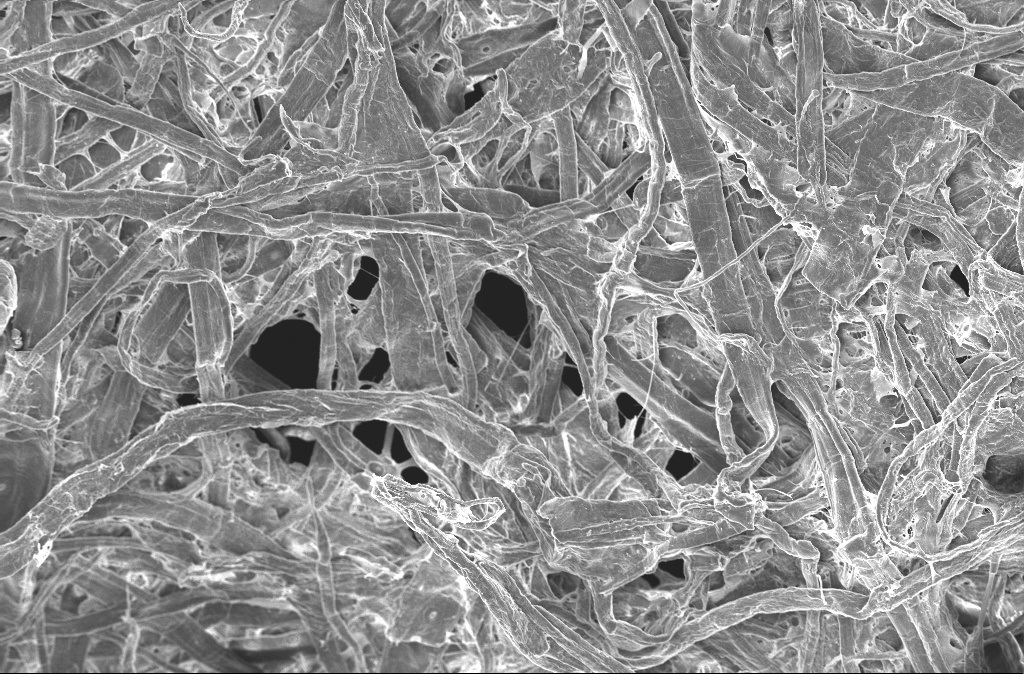

I honestly don’t think NK is expecting them to come back. That would allow them to desert with reduced risk. I’m sure some of them are at least considering it, or will be soon.


I honestly don’t think NK is expecting them to come back. That would allow them to desert with reduced risk. I’m sure some of them are at least considering it, or will be soon.


Paper towels are able to absorb water because of cellulose’s natural gaps and spaces:

Most bacteria are about 1 micron, and these gaps range from around 1-10 microns.
Especially if damp, it can be argued that they don’t stop the transfer of bacteria. It’s possible that your bacteria transfers through it and vice versa. This is all before the fact that paper towels can already harbor bacteria on their own.
That being said, paper towels do block some. You just shouldn’t think of them as sterile or a magic blocker for bacteria.


I have bad news, most (?) paper towels, toilet paper, and even the toilet seat covers are microscopically transparent, meaning there are plenty of gaps for microbes to get through.


Archive link: https://archive.ph/iEoYE


Archive link: https://archive.ph/Yn4uT


Yes, the banks know. Their cut is usually large enough for them to look the other way.


Since the title wasn’t clear on who the author is classifying as ordinary:
There are also the hundreds of thousands of Russians who left home because they did not want to have anything to do with Vladimir Putin’s war — or were forced out, accused of not embracing it enough. These low-profile dissenters are subjected to surveillance and kidnappings, too. Yet their repression happens in silence — away from the spotlight and often with the tacit consent, or inadequate prevention, of the countries to which they have fled.
Also:
Some of the methods are especially insidious. Lev Gyammer, an exiled activist in Poland, has been receiving texts for two years, supposedly from his mother. “Levushka, son, I miss you so, when will you visit me?” Another reads, “Son, I’m waiting for you. Come back soon.” He ignores them: His mother, Olga, died five years ago. Another Russian expatriate — whose elderly parents are still alive and very sick — chose to believe it when his parents’ nurse of many years told him, over the phone, of a fire in their apartment. He rushed home from Finland and was immediately taken to prison and tortured, according to Mr. Smirnov. Of course, there never was a fire.
Those who cannot be tricked back to Russia are subjected to surveillance. An employee of an organization that supports L.G.B.T.Q. people was walking her dog around the neighborhood in Tbilisi, Georgia, when she noticed that she was being followed by a drone. It was an evening in early May — two years since she’d fled Russia with the rest of her colleagues. She hurried back to hide at her apartment but could still hear the buzzing. She followed the noise to the balcony and came face to face with the device, hanging there within arm’s reach.
That’s neat! I had no idea. However:
I’m not overly familiar with the malware situation but I doubt it’s a serious concern
The only virus I’ve ever knowingly been infected with was from a copy of Need for Speed: Hot Pursuit for the PS2.


deemix


I might try it, but if I do I’ll eat it in my dark basement away from outside eyes.


Give me the arsenic because there is no way I’m overcooking my rice to remove it


Which billionaire is going to spend money on this rather than spending it on helping humanity?


If that is accurate to Sweden’s laws (what you originally said), then your friend’s opinion does not matter. Only Sweden can make it illegal, not your friend.


Speak for yourself, I just had two omelettes, three bowls of cereal, a pack of bacon, a dozen pancakes and two gallons of orange juice for breakfast.


All the more reason to help out! Luckily regardless of the status of the archive, as long as there are seeders the torrents will be up.


That goes both ways, at least a little. It would be risky for Russia to ever use nukes, even on their own territory. It certainly wouldn’t make the west happy, and their citizens probably don’t want to see their own villages with mushroom clouds over them.
and